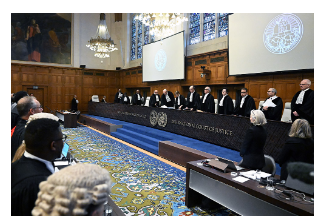Bolivia - It is a landlocked country located in western-central South America.
- It is named after independence fighter Simon Bolivar.
- It is located in the rugged Andes Mountain, with a highland plateau and lowland plains in the Amazon basin.
- One-third of the country is within the Andean mountain range.
- It borders the countries of Argentina, Brazil, Chile, Paraguay, and Peru.
- The constitutional capital is Sucre, while the seat of government and executive capital is La Paz.
- It shares control of Lago Titicaca, the world’s highest lake navigable to large vessels, at 12,500 feet above sea level.
|

